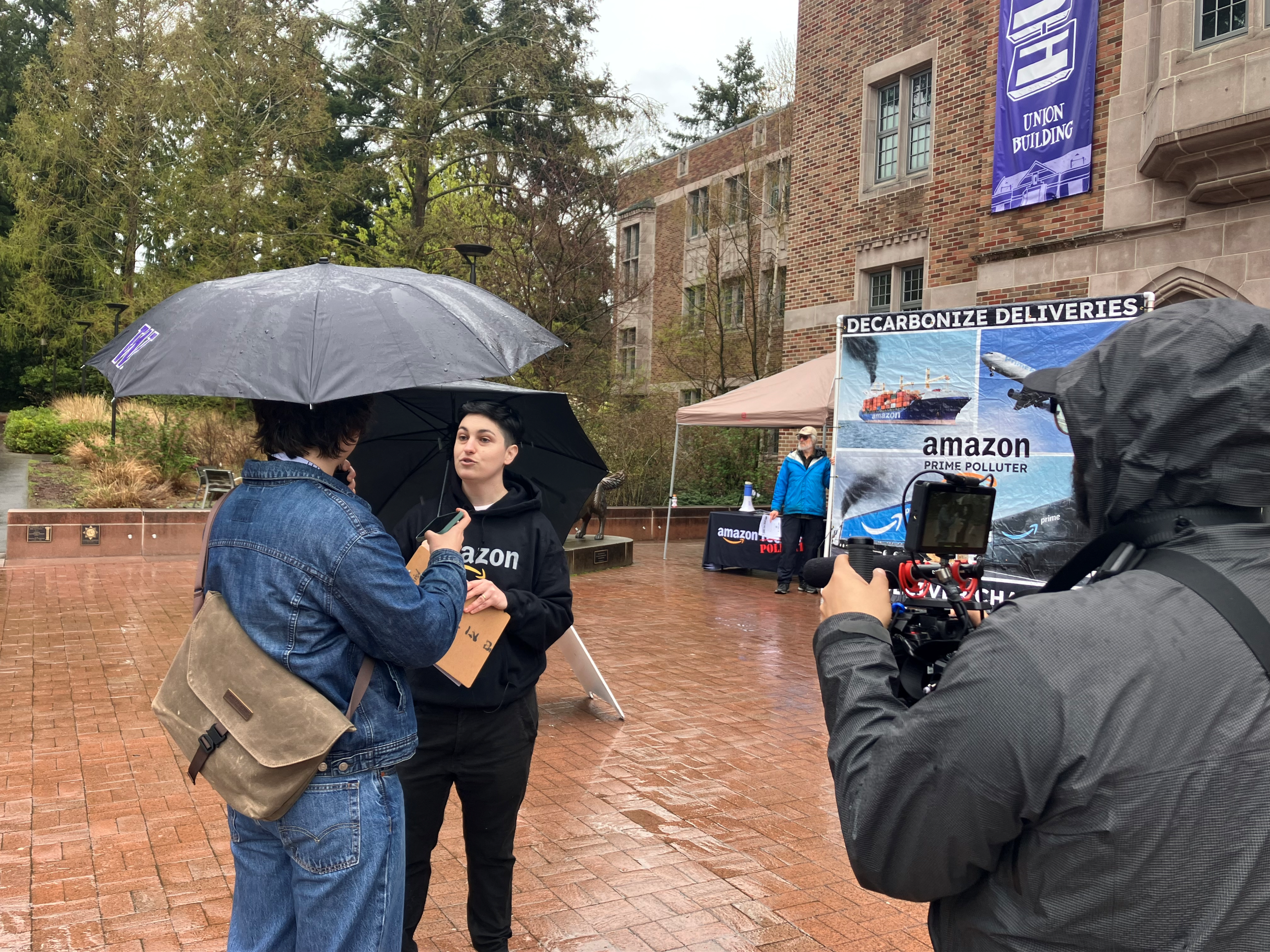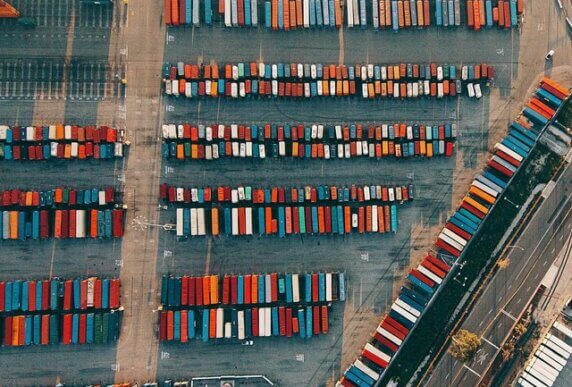


SEATTLE, WASHINGTON (March 9, 2023) — Yesterday, the Aspen Institute, Amazon, Patagonia and Tchibo announced the formation of the Zero Emission Maritime Buyers Alliance (ZEMBA), a first-of-its-kind effort to create aggregated demand for zero-emission maritime fuels.The mission of ZEMBA is to accelerate commercial deployment of zero-emission shipping, by leveraging companies’ collective buying power to accelerate the zero-emission vessel market and realize the ambition of zero-emission ocean shipping by 2040.
The Ship It Zero coalition commends Amazon, Patagonia, Tchibo and the Aspen Institute for this leadership move to bring about transformation in the shipping decarbonization movement by addressing the need to accelerate technologies for the shipping sector. Ship It Zero is particularly encouraged by the focus on immediate action, noting the announcement’s commitmentment to issue a request for proposals for zero-emission shipping this year to move products by no later than 2025-2026. In addition, we welcome the focus on “emissions on a lifecycle basis, for all greenhouse gasses, not limited to carbon dioxide,” which major shipping carriers should take as a clear sign to stop investing in methane-emitting liquified natural gas (LNG).
This announcement comes on the heels of a new Ship It Zero report that the coalition released last week, which called on Amazon to increase the ambition of its maritime shipping commitments, take more material this-decade action, and to use its power to start and lead Zero-Emission Maritime Fuels Buyers Alliance. The report spotlighted the nation’s largest major companies that import goods into the U.S. — including Walmart, Home Depot, LG Electronics, Nike, Target, Amazon and IKEA — and revealed new data on ocean shipping emissions generated from the transportation of goods from the technology, furniture and fashion sectors.
The maritime import emissions of 18 companies were analyzed, including: Walmart (#1), Target (#2), The Home Depot (#3), LG Group (#4), Lowes (#5), Ashley’s Furniture (#6), Amazon (#7), Samsung (#8), Costco (#9), Nike (#10), IKEA (#11), Williams Sonoma (#12), Dell (#13), VF Corp (#14), Adidas (#15), Hewlett-Packard (#16), Living Spaces (#17) and H&M (#18).
STATEMENTS FROM SHIP IT ZERO
“We applaud the formation of ZEMBA and urge Walmart, Home Depot, Target and all other major retailers to join this important collaborative platform. Just last week, Walmart and Home Depot stated that they are working with freight partners to ‘encourage’ and ‘scale up’ sustainable shipping solutions; we urge them to make good on these commitments and help create zero-emission futures for port communities, our shared oceans, and our shared planet,” said Madeline Rose, Climate Campaign Director at Pacific Environment.
“We appreciate Amazon’s leadership in becoming a founding member of this alliance and its correlating commitment to zero-emission shipping by the end of the next decade. It’s a step in the right direction but simply fails to meet the urgency of the climate crisis and the need to rapidly decarbonize ocean shipping. We urge companies like Amazon and Patagonia as well as new sectors, from fashion to tech, to commit to achieving 100% zero-emission, fossil-free ocean shipping by 2030 to ensure a healthier, cleaner tomorrow for our communities and our climate,” said Kendra Ulrich, Shipping Campaigns Director for Stand.earth.
SHIPPING INDUSTRY’S POLLUTION PROBLEM
The global shipping industry accounts for 3% of global climate emissions, more than global air travel. If shipping were a country, it would be the world’s sixth largest climate polluter. But since maritime shipping negotiated itself out of the U.N. Paris Agreement, the effort to reduce emissions in the industry has been slower than in other sectors.
Approximately 90% of the world trade is transported by sea, and current business-as-usual scenarios project emissions will grow up to 50% over 2018 levels. While the International Maritime Organization noted increased ship size and operational improvements aimed at creating better fuel efficiency have resulted in a decrease in emissions intensity, annual absolute emissions are still increasing.
###
Ship It Zero is a climate and public health campaign to move the world’s largest companies to 100% zero-emissions ocean shipping. It urges companies such as Walmart, Home Depot, Amazon, Target and IKEA — to transition to 100% zero-emissions cargo shipping vessels by 2030. This goal will ensure the shipping industry does its fair share in helping to keep global warming under 1.5 degrees Celsius, the target scientists say is needed to avoid the worst consequences of the climate crisis.
Media Contacts:
Gwen Dobbs, Senior Communications Manager, Pacific Environment, gdobbs@pacificenvironment.org, 202 329 9295 (Pacific Time)
Shane Reese, Corporate Campaigns Media Director, Stand.earth, shane.reese@stand.earth, +1 919 339 3785 (Eastern Time)

Recent Updates





